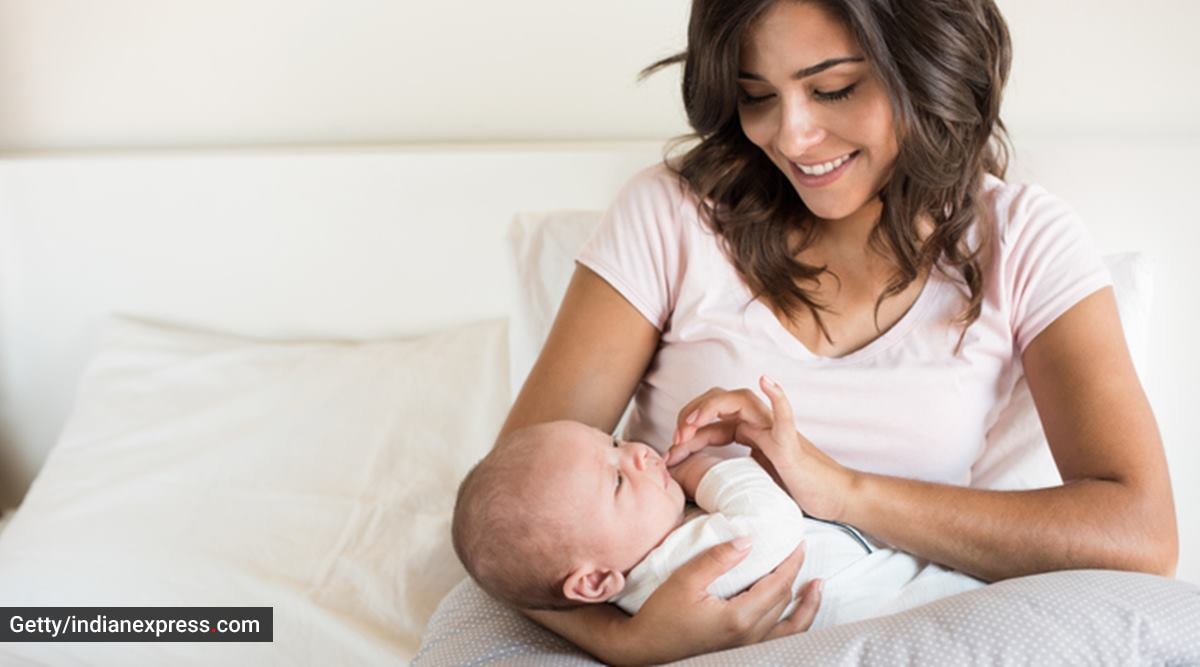Covid-19 had its own positive and negative effects on breastfeeding. Parents had more time to spend with children, whereas lack of help, separation of mother-baby dyad resulted in poor breastfeeding outcomes.

By Dr Reshma Jain and Dr Prashant Gangal
Breastfeeding is a lifetime gift that a mother gives to her baby. The first 1000 days (pregnancy to the second birthday of the baby) are a period of rapid physical growth and accelerated mental development and offer a unique opportunity to build lifelong health and intelligence. Even if thought to be natural; hindrances, myths overcome the achievement of exclusive breastfeeding.
Infant and Young Child Nutrition (IYCN) recommends:
1. Initiation of skin-to-skin contact within five minutes of birth and breastfeeding within the first hour of birth. The skin-to-skin contact should be continued till the completion of the first breastfeed.
2. Exclusive breastfeeding till the first six months of life.
3. Introduction of appropriate, hygienically prepared, homemade mashed complementary foods after completion of six months of age and that breastfeeding to be continued up to two years of age and beyond.
4. Interactive feeding to stimulate the mental and emotional development of the baby.
ALSO READ |Breastfeeding and obesity prevention: All you need to know
The theme for 2021 is ‘Protect Breastfeeding: A shared responsibility’. Breastfeeding is one of the best investments for saving lives and improving the socioeconomic status of nations. Since 2016, the WBW campaign of WABA is aligned with United Nations Sustainable Development Goals (WBW-SDG Campaign). This year’s focus is to highlight that breastfeeding is a shared responsibility of the government, healthcare system, workplace, community, and family; to protect, promote, and support breastfeeding to achieve sustainable development. Although it’s a week’s affair, the impact, work, and support have to be provided throughout the year.
Increased funding, monitoring systems, formulating national guidelines that promote breastfeeding could be done at the national or government level. Healthcare systems shall ensure BFHI (Baby-Friendly Hospital Initiative) implementation in public and private sectors, refrain from any help or incentives from Breast Milk Substitutes manufacturers or distributors (IMS act and International Code of marketing of breastmilk substitutes are formulated for this purpose), and conduct appropriate breastfeeding-related training and continued breastfeeding education of healthcare workers to help parents breastfeed. Workplaces are expected to look into matters of maternity, paternity leave, and the establishment of Hirkani Kaksha (breastfeeding room) for working mothers. The community has a major impact with the help of socio-cultural and religious influencers to promote, protect, and support breastfeeding.
ALSO READ |World Breastfeeding Week: Tips and tricks to boost lactation
With a horrific Covid-19 pandemic last year and a major setback to our health care systems and community, having a strong support system is mandatory. So, a public health approach to breastfeeding is needed to build back better systems. The Warm chain campaign is by this year’s theme wherein the mother-baby dyad is at the core and a warm chain of a continuum of care in the first 1000 days of baby’s life is formed around them with help of different sectors, likewise government, healthcare, community, workplace, and family. This denotes that a circle of care is created around the duo which includes skilled care providers to help in breastfeeding, mother and child care at the antenatal, delivery, postnatal, baby, and follow-up care. These include the doctors, nurses, lactation consultants, mother support group workers, family friends, trained dais, massage ladies (malishwali bai), etc. Consistent messages, access to breastfeeding help, and proper referral systems throughout the warm chain would protect the breastfeeding dyad. In this pandemic situation, even digital platforms could be used to provide the same.
ALSO READ |The power of celebrity advocacy to build a breastfeeding-friendly India
Covid-19 had its own positive and negative effects on breastfeeding. Parents had more time to spend with children, whereas lack of help, separation of mother-baby dyad resulted in poor breastfeeding outcomes. So the correction of these gaps in knowledge, attitude, and practices is necessary to sustain breastfeeding. Recommendations of IYCN do not change irrespective of a mother’s Covid-19 status. She can continue breastfeeding even after being positive or suspected with Covid-19 with proper mask and hand hygiene. If the mother is ill and unable to breastfeed directly, expressed breastmilk can be fed to the baby with a katori and spoon. Mothers without any symptoms or Covid-19 negative need not wear masks at home while caring for their baby. However, they should avoid going out except in dire need, avoid crowded places and gatherings at home. Out of the house, they should follow the use of masks, social distancing, and hand sanitisation.
The Covid-19 vaccine can be given to pregnant (beyond the fourth month of gestation) and lactating mothers as per MOHFW, GOI. A mother need not stop breastfeeding before or after vaccination.
It’s teamwork that achieves glory and the same holds for breastfeeding. We are in this together and would achieve it together.
(The writers are paediatricians and lactation consultants.)
For all the latest Parenting News, download Indian Express App.
Source: Read Full Article
